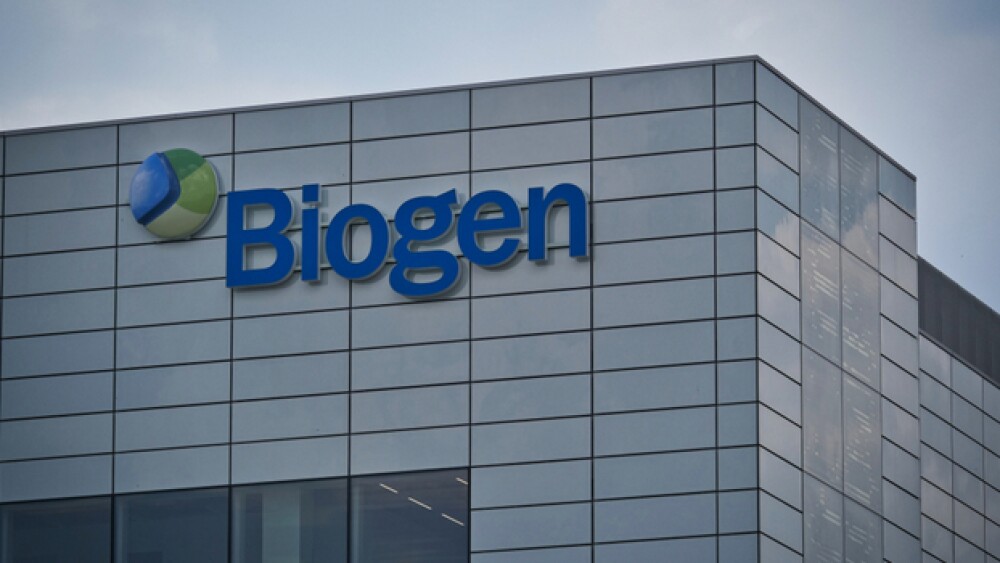The 12-month data showed that 50 mg of zuranolone was well-tolerated among adults with MDD.
PictureDesignSwiss/Shutterstock
Almost one year after Biogen forged a collaboration with Sage Therapeutics worth $1.52 billion, the development deal for the experimental major depressive disorder treatment zuranolone is bearing fruit that will support an expected rolling New Drug Application next year.
In October, the two companies announced plans to seek approval of zuranolone for the treatment of major depressive disorder (MDD) in 2022. The companies said additional filing for postpartum depression (PPD) is anticipated in the first half of 2023.
This morning, Sage and Biogen announced positive, one-year data in MDD that will support the planned NDA. The 12-month data showed that 50 mg of zuranolone was well-tolerated among adults with MDD.
The data from the Phase III SHORELINE study, which is part of the company’s overall LANDSCAPE clinical program assessing zuranolone, was designed to follow adults for one year to evaluate not only the safety and tolerability of the drug but also any need for repeat dosing during the year. The study provides real-world insight into the potential use of zuranolone, if approved, as an as-needed treatment for MDD.
In its results, it showed that 75% of patients responded to an initial 14-day course. Of those who responded to the first dosing course and continued in the study, about 80% received at most one additional zuranolone treatment during the course of a year.
Zuranolone is an investigational oral neuroactive steroid GABAA receptor positive allosteric modulator. The GABA system is the major inhibitory signaling pathway of the brain and central nervous system and contributes significantly to regulating brain function.
Sage Chief Executive Officer Barry Greene believes zuranalone has the potential, should it be approved, to reduce depressive symptoms in MDD patients and maintain those for longer periods of time.
“The SHORELINE Study helps provide important information on how zuranolone if approved, could be used to treat people with MDD. We are pleased by the progress made with zuranolone throughout 2021 and the data we have generated in clinical development to date supports our belief in the overall profile of zuranolone, and its potential to make a profound difference in the lives of many patients living with MDD,” Greene said in a statement.
Greene told BioSpace this morning that the goal of the company’s LANDSCAPE program has been to provide information on the potential benefits and risks of zuranolone for the treatment of MDD. Greene said that Sage’s vision is to provide treating practitioners with a better tool for depression patients looking for rapid and lasting treatment.
“Zuranolone offers these patients the potential for longer periods free from depression symptoms and avoidance of the side effects of daily chronic treatments. SHORELINE Study data will be important to inform real world use, if zuranolone is approved,” Greene said.
Throughout its clinical program, “zuranolone has consistently demonstrated rapid and sustained improvements in depressive symptoms and continued to maintain a well-tolerated safety profile,” Sage Therapeutics said.
Priya Singhal, head of Global Safety and Regulatory Sciences and Interim Head of R&D at Biogen said the new data from the Phase III SHORELINE study reinforces the positive findings from multiple late-stage studies of zuranolone. Singhal added that zuranolone was generally well-tolerated by participants regardless of the number of treatment courses received during the one-year study.
“These new data further and underscore the potential of zuranolone as a well-tolerated, rapid-acting and durable treatment option for depression,” Singhal said in a statement.
When Biogen struck its collaboration with Sage last year, the company said it believes zuranolone and other Sage assets will complement its neurological treatments pipeline. Depression is a common co-morbidity in patients’ neurological disorders.
Major depressive disorder is a common mood disorder that is characterized by depressive symptoms that impair the daily functions of people’s lives. It is estimated that approximately 19 million people in the U.S. and more than 250 million people worldwide suffer from MDD each year.





